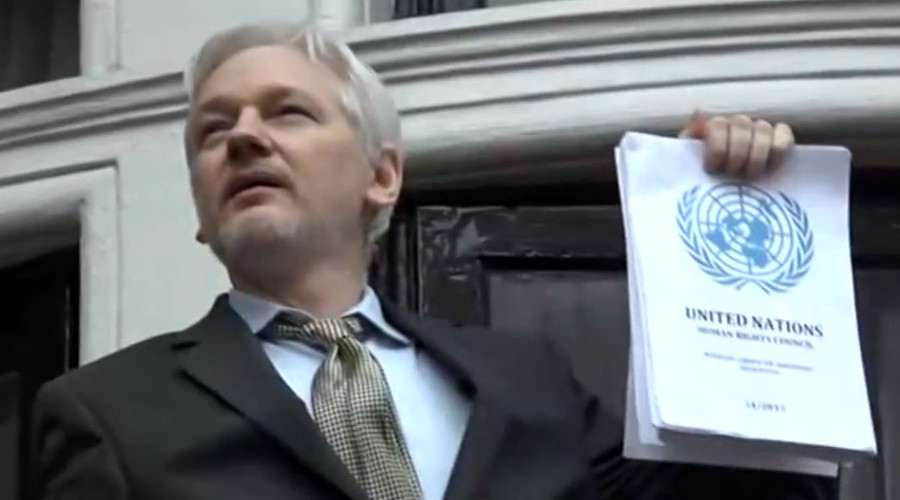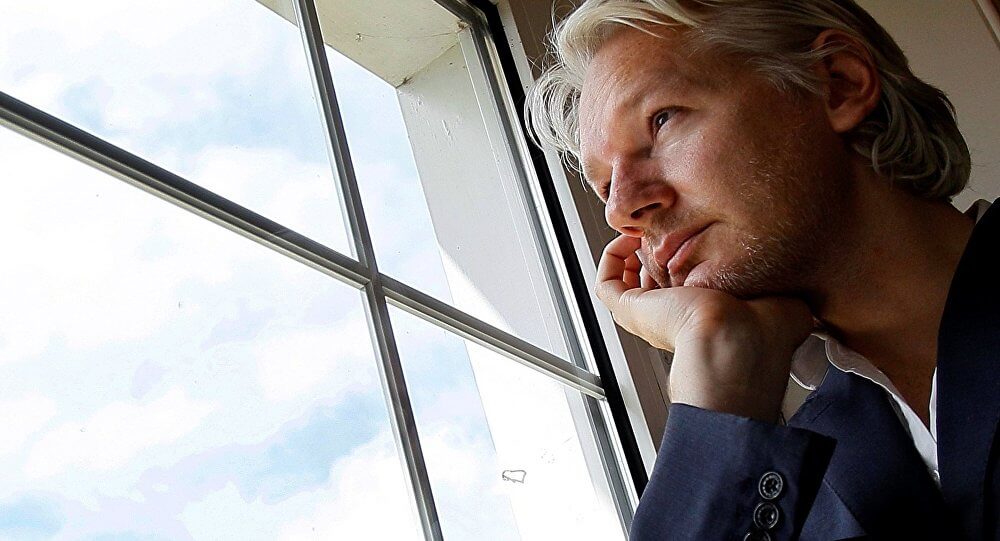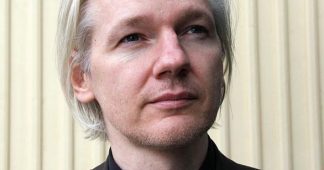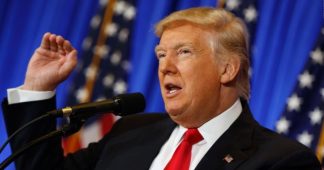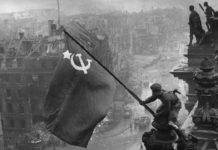by Elizabeth Lea Vos
3/30/2018
The Ecuadorian Government’s decision to silence Julian Assange by cutting off his internet access, phone communications and ability to receive visitors represents a saddening turnabout by a country that has long protected the publisher’s human and journalistic rights. The move took place at the behest of Ecuador’s President Lenin Moreno, who took office in May last year. Since that time Moreno has continued to provide Assange with asylum in the Ecuadorian embassy in London, and his government conferred citizenship and diplomatic immunity on the arbitrarily confined journalist last December.
When news of the cut in communications emerged yesterday, friends and supporters of Assange immediately leapt into action, with Kim Dotcom and Suzie Dawson organizing an online vigil under the banner of #ReconnectJulian. Meanwhile, supporters on the ground in London gathered in front of the embassy, live streaming as they stood in solidarity for hours, metres from the confined Wikileaks Editor-In-Chief.
The event stretched to over ten hours of continual live streaming. We were so honored to be joined by the most incredible guests imaginable all day long, in an awe-inspiring show of solidarity for a political prisoner. Participants included a range of viewpoints from across the political divide and included in no particular order: Kim Dotcom, Suzie Dawson, this writer, Cassandra Fairbanks, Ray McGovern, members of the Pirate Party, Emmy Butlin, John Kiriakou, Ron Placone, HA Goodman, Caitlin Johnstone, Lee Camp, Tim Black and Trevor Fitzgibbon.
This author was utterly overwhelmed at the radiating kindness shown by every single person who contributed whether as a guest or behind the scenes, creating visuals, compiling questions, monitoring the live chat, spreading the word on social media, and more. The way in which Assange and Wikileaks consistently bring out the best in people, participants and viewers alike, speaks to the absolute integrity at the heart of the organization. During the entirety of the stream the strength, mutual respect, and love of truth was palpable.
The full ten-hour stream is available below:
Topics of discussion ranged from the reason for Ecuador’s decision to cut off Julian Assange’s communication to the importance of Wikileaks in the field of journalism and in protecting the public from the harmful acts of their governments, and beyond.
To accurately summarize the contributions of such a range of incredibly gifted human beings over ten hours is impossible. Those who had met Julian Assange in person spoke of their impressions of him as incredibly intelligent, in good spirits, and as unbowed in the face of the powers seeking to oppress him. They also spoke of his selflessness in efforts to protect others, whether that be the Catalonian people, Chelsea Manning, Edward Snowden, or thousands of other unknown sources and journalists whose lives have been saved by the efforts of Assange and Wikileaks.
Suzie Dawson emphasized that no journalistic organization has ever gone to the lengths to protect sources than has Wikileaks. Many of the insights gained from Dawson’s recent masterpiece Being Julian Assange, were unexpectedly timely and relevant to the recent events. It provided an invaluable resource that the viewers could use to help others understand the level of attacks that Assange and Wikileaks regularly face.
John Kiriakou added that the CIA and US intelligence agencies would be extremely happy at the news that Assange had been isolated. He went on to say that they most likely added pressure to Ecuador and Spain to punish Assange, as the United States intelligence community was tired of waiting to prosecute the Wikileaks co-founder.
Kiriakou referenced the likelihood that secret charges await Assange in the United States, specifying that such charges would likely be filed in the Eastern District Court of Virginia, which he said is known as “the Espionage court.” Kiriakou explained that this was because no national security defendant had ever won a case there, and that it is the home of the Central Intelligence Agency. He said: “[Assange] couldn’t possibly get a fair trial in the Eastern District of Virginia.”
Independent journalist Tim Black expressed his support for Assange and Wikileaks, and astutely observed: “This is not a eulogy, and [Assange] will be fighting like hell!” He described the process of slowly finding truth-telling voices amongst corporate narratives, which then naturally translates to becoming a truth teller for others, helping the public see outside legacy media manipulation. His characterization echoed Ray McGovern’s sentiments, when he called Wikileaks and Assange an example by which we should model our journalistic endeavors.
Trevor Fitzgibbon also gave his insight on Assange, his sense of humor and sense of caring for and doing good in the world, praising Assange’s courage as truly contagious. Meanwhile, Ron Placone pointed out the vague nature of Ecuador’s alleged agreement with Assange not to interfere in its relationship with other states, characterizing the current silencing of Assange as punishing a journalist for doing journalistic work. He said that Assange: “Is one of the biggest scapegoats, right now.”
Placone also mentioned the harsh media treatment directed towards Wikileaks supporters like Randy Credico, especially in comparison with the “softball interviews” given to oligarchs and warmongers. This was a topic also discussed by Ray McGovern, who described his experience of being shut out by legacy media and even well-known ‘alternative’ news outlets and pundits, including Democracy Now and Amy Goodman.
One important takeaway from #ReconnectJulian, for all involved, was the invaluable resource Wikileaks is for all independent and anti-establishment journalists. While legacy press largely neglected coverage of the stream, the #ReconnectJulian event nevertheless reached tens of millions of twitter impressions organically over the course of the day. In effect, the event represented the success of independent media in becoming the replacement of legacy press coverage on the censorship of Assange.
Based on the resounding success of #ReconnectJulian, it appears that the public considers pro-Wikileaks, anti-corporate voices as a more reliable source of information than legacy outlets.
This was epitomized early in the progress of #ReconnectJulian, when Kim Dotcom correctly surmised that the reason for Ecuador’s decision to cut Assange’s contact with the outside world likely stemmed from pressure by Spain in the wake of Assange’s consistent advocacy for the right to self determination for Catalonians. Meanwhile, The Guardian published a report that incorrectly framed the events in relation to Russia. Dotcom’s suspicions were soon confirmed as correct by both Wikileaks and the Ecuadorian government, though the two parties disagreed as to any agreement allegedly made by Assange limiting his speech.
It appears that the crux of the issue relates to a Tweet posted by Assange in response to the arrest of Catalan President Carles Puigdemont in Germany at the behest of Spain. He drew a factual comparison between these recent events and the arrest of Lluís Companys, President of Catalonia in the 1940’s, who Assange accurately noted was arrested by the Gestapo – also at the request of Spain. Assange has been a consistent pillar of support for the Catalonian people, with his most recent statements on the matter specifying that he is not for Catalonian independence, but instead supports their right to self determination as a people:
Suzie also read a message from Christine Assange, Julian Assange’s mother, who said: “This is Julian Assange’s generation’s struggle. This event and the hashtag has been a roaring success.” Suzie related that Christine was very proud of the vigil and all of the participants.
Lee Camp joined us and expressed his support for #ReconnectJulian, directing praise for Assange and Wikileaks for not only directly influencing media through the publication of documents, but also crediting them with helping to inspire the Arab Spring and Occupy Wallstreet movements. He said: “The ripples of what you have created are immense, and I don’t think anyone’s tried to calculate the impact you’ve had on the world, and that’s why we need you to keep fighting, for transparency, and a world that is not owned by a tiny elite. You are an important part in it.”
Caitlin Johnstone said during the stream: “To be stuck in that embassy anyway and then cut off from the outside world must be devastating… I feel his personal pain, but I think this is really weird. Probably predictable that Ecuador would take issue with things said about the Spanish government, but I hope this goes in reverse for them, that everyone tweets the tweet that they wanted him to take down… that we realize what they are doing to this man. It is just wrong. I thank anyone who is going to bat for Julian because you are on the right side of history… We will make sure that we will remember those who stand up for him.” She also referred to Assange as a “Monk of government transparency,” in light of the degree to which he had given up his life for the cause.
HA Goodman also spoke out in support of Assange and added that he had noticed throughout the day that a number of talking heads with large platforms had stayed silent in the face of Assange being silenced, despite their social media reach. HA expressed his disgust at such cowardice in the face of human suffering.
Emmy Butlin joined the panel, describing the courage and persistence of those who regularly express solidarity with Assange by standing watch on his behalf at the embassy for long hours, every week, for years. She spoke about witnessing policing at the embassy first-hand, as well as the “tremendous support” from the public, whose positivity she characterized as extremely encouraging and something that keeps her going.
A sense of warmth, positivity, integrity, and hope was strongly felt through the event. That Assange inspires such positive interactions which rise far above political persuasion speaks to his being a truth teller. Often, the participants commented on the fact that we were bound by prizing truth above and beyond ideology, and that our support for Assange and Wikileaks represented truth acting as our guiding star.
Cassandra Fairbanks informed the panelists that she had visited Assange last Thursday and that at that time he was in good spirits, and as sharp-witted as ever. She characterized his intelligence as intimidating, saying that she was simply in awe to meet him. Both Emmy and Cassandra spoke of Assange “presenting himself as he is,” an incredible statement in contrast with the often two-faced figures that fill the legacy media sphere.
Ray McGovern, a veteran CIA analyst and prominent member of Veteran Intelligence Professionals for Sanity (VIPS) joined the panel and spoke about his friendship with Julian Assange being initially sparked by Wikileaks’ publication of documents on Afghanistan. McGovern spoke of Assange and Wikileaks providing a pattern by which we can model our journalistic efforts. Ray told us that his five hours on the streamed vigil were the: “… Most pleasant five hours I’ve spent in a long long time, and I admire what you’re doing.”
As Kim Dotcom and others have noted, Ecuador’s treatment of its own citizen, Julian Assange, at the behest of Lenin Moreno and under pressure from the Spanish government also represents a clear breach of article 16.2 of the Ecuadorian Constitution.
Shortly after ending the live stream, this author received a request to appear on Sky News Australia to speak with Ross Cameron of Outsiders about the success of the #ReconnectJulian live stream, and the current situation Julian Assange is facing. It was an honor to represent the collective effort of so many, and Ross Cameron was a pleasure to speak with. The interview remains the only establishment media coverage of the vigil at the time of writing. It can now be listened to in full at the Outsiders podcast, on the 29th March segment.
It remains to be seen as to how long Ecuador will shut Assange off from the outside world via internet connection, phone calls, and visits. One thing is certain: those who support Wikileaks and Assange will not stop fighting until his human and journalistic right to speech and press is restored, and until he is able to leave the Ecuadorian embassy in safety.
As a final note, Wikileaks encouraged those who wish to support Assange at this time to: “Donate to the Wikileaks’ staff legal fund, AND publicly campaign for his freedom including by politely correcting journalists and editors involved in misreportage.”

